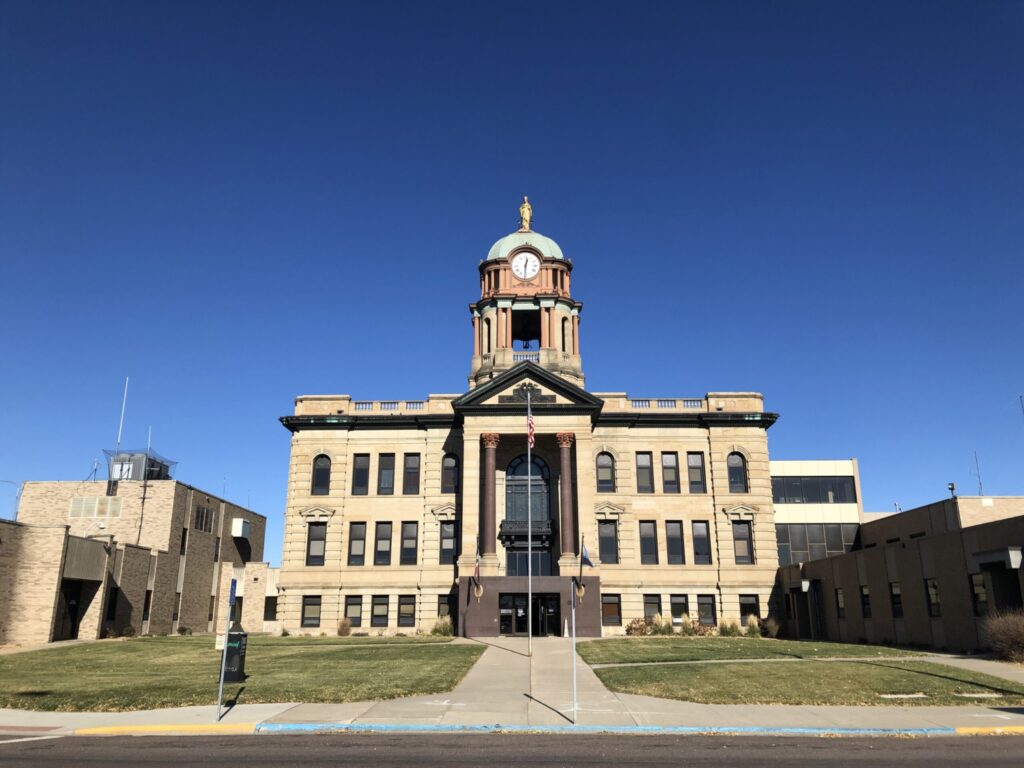
(John Hult/South Dakota Searchlight)
Liquor, beer and wine might offer relief to counties stuck paying for alcohol’s impact on public safety, if a recommendation from a public defense task force becomes law.
Sen. Jim Mehlhaff, R-Pierre, would like to see the state dedicate its half of the $18 million collected in alcohol taxes to finance the creation and operation of a state-level public defender’s office.
The recommendation was added to a list of funding mechanisms in a final report that the group voted to formalize during its Monday meeting, which took place over Zoom. The creation of a state defense office is the group’s primary suggestion. Such an office would handle all abuse and neglect appeals and criminal appeals and cost a little over $1.4 million to fund with a seven-person staff.
Mehlhaff’s idea would see the $9 million in alcohol tax cash the state now pumps into its general fund earmarked for that office. Funds beyond the proposed office’s $1.4 million operational needs could be distributed to counties to help cover the cost of indigent legal services.
The proposal lives at the intersection of two summer studies. A separate study group discussed adjusting the alcohol tax math less than two weeks ago. Currently, cities and counties each get a quarter of the money after the state gets its 50% cut. The county funding group suggested giving 50% to the counties and leaving a quarter apiece for the state and cities.
The goal of the indigent legal services task force was to look for ways to make sure defendants who can’t afford a lawyer get competent legal services. Mehlhaff told members of that task force that moving booze dollars to a public defense office for distribution to counties would make a notable dent in the $22 million annual burden they bear for legal services.
“I know that’s not the primary focus here, but it is certainly something that both groups are looking at: To try to find a way to help the counties out, and this is something that’s eating their lunch on an annual basis,” Mehlhaff said.
Mehlhaff sat on both summer study groups. He told the county funding group’s chair, Huron Sen. Roger Chase, prior to Monday’s meeting that he planned to suggest using the state’s share of the alcohol tax for public defense. He also told Sen. Jim Bolin of Canton, who proposed sending half the money back to counties.
Neither are directly opposed to his alternative, Mehlhaff said. The other members of the public defense group voted to add it to the list of possible funding sources that will appear in its final report.
The task force signed off on that final report Monday, a draft of which is available online. Aside from Mehlhaff’s suggestion and one suggesting a search for federal funding sources, little changed from the group’s most recent discussions. Other funding ideas include a one-time payment to counties for public defense, upping the cost charged to defendants for their court-appointed lawyer, and the creation of a reinvestment pool to help counties cover the cost of major cases.
The group also recommended signing a contract with the nonprofit Sixth Amendment Center to gather data on public defense to better inform the lawmakers who may vote on public defense proposals.
That piece will begin immediately and be funded by the state Unified Judicial System, said task force co-chair and State Court Administrator Greg Sattizahn.
“Regardless of what this looks like during session, it’s going to be important to have more information,” Sattizahn said.
South Dakota is one of just two states that requires counties to cover the entire cost of its constitutional duty to provide a lawyer to those who can’t afford one at both the trial and appeals court levels, according to the final task force report. It’s also one of six to lack state-level public defense oversight through a state office, commission or board. The final report also notes that South Dakota ranks 49th in the nation for state-level contributions to indigent defense costs.
